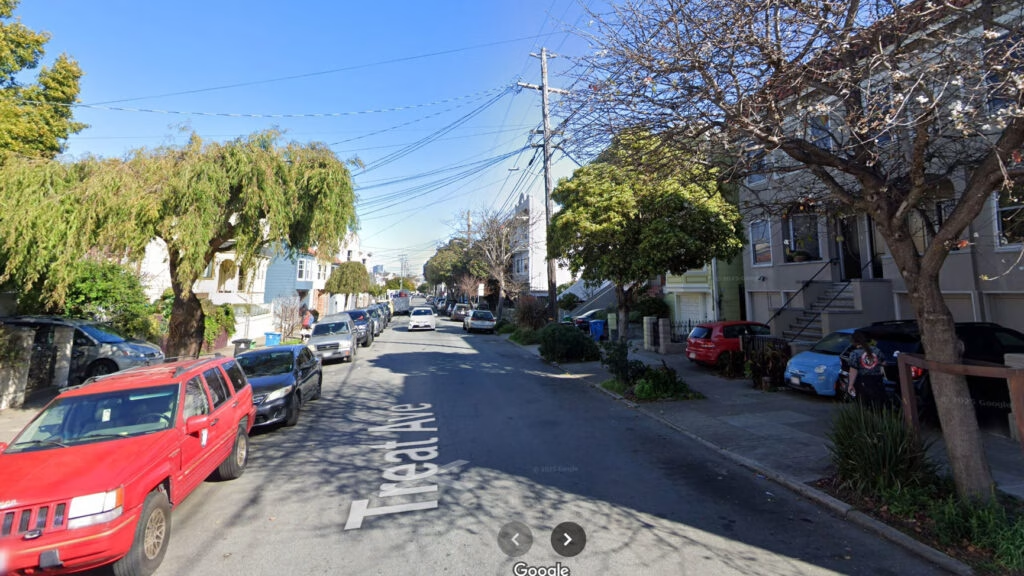Why Are San Francisco Residents Getting Parking Tickets in Their Own Driveways?
Imagine coming home after a long day, pulling into your own driveway, and then finding a parking ticket on your windshield the next morning. For a growing number of San Francisco residents, this isn’t just an urban legend—it’s their new reality. The twist? These tickets aren’t for blocking a neighbor’s spot or ignoring street cleaning signs. They’re for parking in their own driveways, often with plenty of room left on the sidewalk.
How Can You Get Ticketed for Parking at Home?
It sounds absurd, but here’s what’s happening: San Francisco’s 311 system lets anyone report what they believe is illegal parking, including cars that might be encroaching on the sidewalk—even if it’s just a few inches. The city isn’t sending out extra patrols to hunt for these violations. Instead, they’re responding to neighbor-submitted complaints, often accompanied by photos.
Some residents say the violations are so minor they’re almost laughable. David Chen, a Mission Bay local, described a situation where there was “like 10 feet of open space” left on the sidewalk. No one with a stroller, wheelchair, or walker was blocked. Yet, tickets—often over $100—keep rolling in. The frustration is palpable, especially when the same photo is reportedly used to ticket multiple cars or the same car on different days.
What’s the Law Actually Say About Driveway Parking?
California law is pretty clear: you can’t block the sidewalk, even if it’s your own driveway. The intention is to keep sidewalks accessible for everyone, including people with disabilities, parents with strollers, and anyone else who needs a clear path. But in practice, the rule can feel inflexible—especially when the car is barely over the line and not causing any real obstruction.
San Francisco’s Department of Parking and Traffic has confirmed that the city’s hands are tied. If a 311 report comes in with photographic evidence, and the car appears to be blocking any part of the sidewalk, a ticket is issued. No warning, no chance to move your car first. It’s a system that relies heavily on neighborly goodwill—or, as some see it, the lack thereof.
Are These Tickets Fair or Just Neighborhood Tattling?
This is where things get sticky. Some residents believe the uptick in tickets is less about safety and more about personal grievances. Maybe a new neighbor doesn’t like the way you park. Maybe someone’s annoyed about noise or trash and decides to get even. The ease of submitting a 311 report—just snap a photo and upload—makes it tempting for people to police each other, sometimes over the smallest infractions.
There’s also concern about due process. Attorney Steve Lehto, who’s covered similar cases, points out that the Sixth Amendment gives you the right to confront your accuser. If the person who took the photo doesn’t show up in court, there’s a strong argument that the ticket should be dismissed. But most people just pay the fine rather than fight it, especially when the process feels opaque and stacked against them.
What Can Residents Do If They Get Ticketed?
If you find yourself in this situation, don’t panic. First, check the details on the ticket and review the photos if they’re available. If you truly weren’t blocking the sidewalk, you have the right to contest the ticket. Document your own evidence—take photos from multiple angles and at different times of day. If you suspect the same photo is being used repeatedly, bring that up in your appeal.
Some residents have had success by attending hearings and insisting that the city prove the violation actually occurred as described. Others have pointed out inconsistencies in the reporting process, such as time stamps that don’t match or unclear images. It’s not a guarantee, but persistence can pay off.
Is There a Bigger Issue at Play?
This wave of driveway ticketing highlights a broader challenge in urban living: balancing accessibility and fairness with common sense. Cities want to keep sidewalks open for everyone, but rigid enforcement—especially when driven by anonymous complaints—can erode trust and community spirit. The system is meant to protect, but when it feels punitive or arbitrary, it can do more harm than good.
A 2023 survey by the National Association of City Transportation Officials found that 67% of urban residents support strict sidewalk access rules, but only 29% believe their city enforces them fairly. That gap points to a need for clearer guidelines, better communication, and maybe even a little more neighborly empathy.
What’s the Real Takeaway for San Francisco Homeowners?
If you park in your driveway, double-check that your car isn’t even slightly over the sidewalk line. Consider marking the edge of your driveway with reflective tape or a low curb to help you—and your neighbors—see exactly where the legal boundary is. And if you do get a ticket, don’t be afraid to challenge it, especially if you think it’s unfair.
The big takeaway? Urban parking isn’t about perfection—it’s about smarter adjustments. Start with one change this week, and you’ll likely spot the difference by month’s end. Sometimes, a little awareness and a dash of patience are all it takes to keep the peace—and your wallet—intact.

